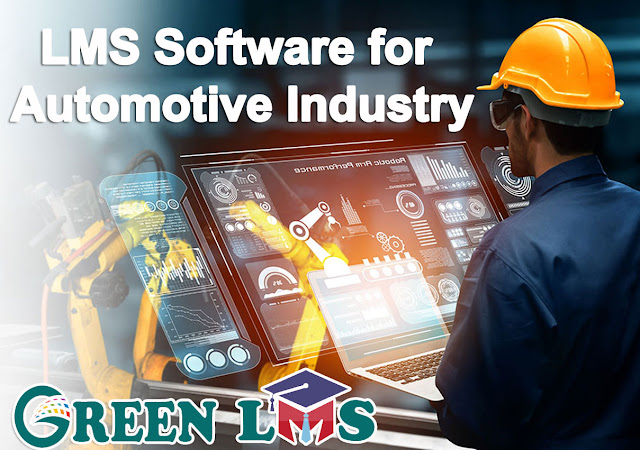Crafting Inclusive Pathways with LMS Support
In today’s globalized world, diversity and inclusion are not just social imperatives but also key drivers of educational innovation. Learning Management Systems (LMS) stand at the forefront of this transformative wave, offering unprecedented opportunities for personalized, accessible, and inclusive education. This article explores how LMS support can be leveraged to create a learning environment that celebrates and nurtures diversity.
Embracing Diversity through LMS Architecture
The blueprint of an LMS must inherently reflect the diversity of its user base. This means designing platforms that are accessible to learners of all abilities, backgrounds, and learning styles. It involves the integration of assistive technologies, multilingual support, and culturally responsive content, laying down a digital ecosystem where every learner finds resonance and representation.
Inclusive Learning: More Than Just a Buzzword
Inclusive learning within an LMS is characterized by content and strategies that cater to a broad spectrum of learners. It’s about dismantling barriers to learning, whether they be physical, cognitive, or cultural. An inclusive LMS provides alternative formats for content consumption, such as text-to-speech for the visually impaired or closed captioning for the hearing impaired, ensuring that learning is a right, not a privilege.
Personalization: The Key to Learner Engagement
A one-size-fits-all approach is antithetical to diversity. Personalization is the hallmark of an inclusive LMS, allowing learners to set their own pace, choose their learning paths, and access resources that match their individual needs and goals. Adaptive learning technologies within an LMS can create customized experiences that are responsive to the unique learning patterns of each user.
Cultural Competency in Content Curation
Content within an LMS should be a mosaic of global perspectives. Culturally competent content is not only inclusive but also enriching, exposing learners to a variety of viewpoints and experiences. An LMS should provide educators with tools to curate and deliver content that both reflects and respects the rich tapestry of human diversity.
Collaboration Tools: Fostering Community and Understanding
Collaboration tools within an LMS can build communities of learning where dialogue, peer learning, and shared experiences flourish. These digital spaces are platforms for the exchange of ideas, encouraging empathy, and understanding among diverse learner cohorts.
Feedback Mechanisms: Listening to the Voices of All Learners
An inclusive LMS actively seeks out and responds to feedback from its users. Feedback mechanisms should be accessible and actively managed, ensuring that learners feel heard and that their input directly informs the evolution of the LMS.
The Role of Analytics in Promoting Inclusivity
Data analytics play a crucial role in understanding how different learners interact with an LMS. Insights gained from analytics can drive improvements, helping educators and administrators to identify gaps in accessibility and engagement and to develop strategies that promote inclusivity.
Training and Support: Equipping Educators for Diversity
Educators are the linchpins of inclusive learning. An LMS should provide comprehensive training and support resources that equip educators with the knowledge and skills to create and facilitate inclusive learning experiences.
Designing for Accessibility: Standards and Best Practices
An LMS must adhere to international accessibility standards, such as the Web Content Accessibility Guidelines (WCAG), ensuring that the platform is navigable and usable for everyone. Best practices in accessibility should be ingrained in the LMS from the outset, not retrofitted as an afterthought.
The Ethical Dimension: Privacy and Security in a Diverse Learning Environment
As LMS platforms collect and process a wide range of personal data, safeguarding privacy and ensuring security are essential. An inclusive LMS is one where learners trust that their data is protected and their digital learning environment is secure.
Community Building: Beyond the Virtual Classroom
An inclusive LMS extends its reach beyond the confines of the virtual classroom to foster a sense of community among learners. Events, webinars, and forums dedicated to diversity and inclusion can nurture a community ethos that transcends digital barriers.
The Future of Inclusive Learning with LMS
The future of LMS lies in its ability to be not just a platform for education but a catalyst for social change. As LMS platforms evolve, they have the potential to become more than just tools for learning; they can be agents for promoting understanding and respect for diversity in a globalized world.
Conclusion: A Call to Action for Inclusive Learning
Read more about how Green LMS can be tailored for various applications:
Ready to experience unparalleled eLearning in Oman with peace of mind? Click here for Lifetime Free Green LMS. With Green LMS, secure and stellar e-learning is not just a promise, but a guarantee. https://www.thegreenlms.com/book-a-demo/




Comments
Post a Comment